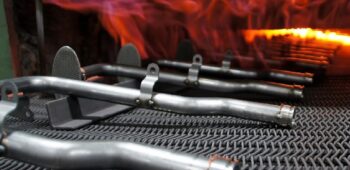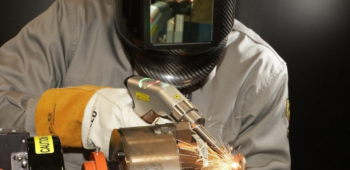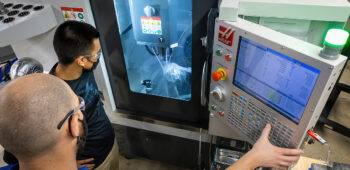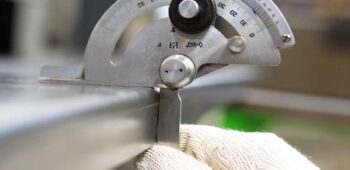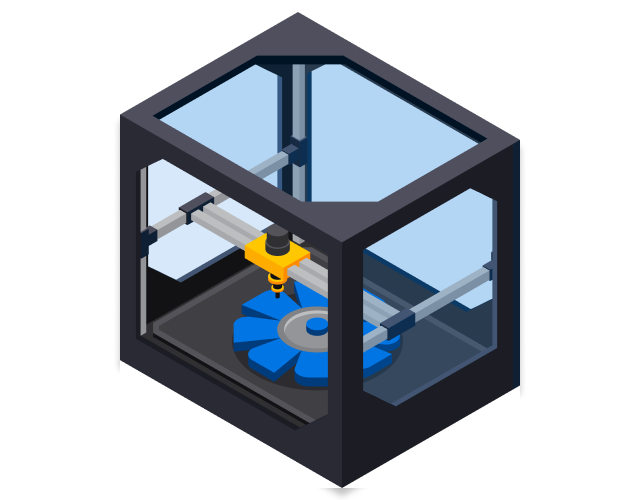Metal Casting

Casting is a fundamental process in manufacturing that allows the production of metal parts from the melting of metals and their subsequent pouring into molds. This method is used to manufacture components in various industrial sectors, including automotive, machinery, and medicine, among others. EMS Group excels in this field by offering a wide range of foundry services, ranging from carbon steel, stainless steel, aluminum and zamak to microcasting as well as complex alloy casting.
Steel Casting
Steel casting is a process that involves the fusion of different steel alloys to create products that vary in shape and composition. This type of casting is crucial for the manufacture of parts that require high strength and durability.
Characteristics of Steel Casting
- Strength and Durability: Cast steel exhibits superior mechanical properties, resulting in robust products that can withstand extreme conditions.
- Versatility: It can be manufactured in a wide variety of shapes and sizes, making it suitable for complex components.
- Wear Resistance: Ideal for applications in machinery where friction and wear are critical factors.

EMS Group offers steel casting services that provide customized solutions, ensuring that each part meets the required industrial quality standards.
Zamak Foundry
Zamak is a zinc alloy that includes aluminum, magnesium, and copper. Its use has increased in many industrial applications thanks to its specific properties.
Features of Zamak Foundry
- Low Weight: Zamak’s lightness makes it ideal for applications where weight is a critical factor, such as in automotive and electronic components.
- Ease of Machining: Zamak components can be easily machined, increasing the efficiency of the production process.
- Superior Finishes: Offers an excellent surface finish that often requires no post-treatments.
EMS Group specializes in zamak casting, enabling the production of high-quality, comprehensive parts for customers looking for effective and efficient solutions.
Microfusion
Casting, also known as precision casting, is a process used to create parts with very tight tolerances and intricate details. This method is especially valuable in the manufacture of high-tech components.
Characteristics of Microfusion Fusion
- High Precision: Produces intricate shapes with minimal tolerances, reducing finishing work.
- Design Flexibility: Allows for the creation of complex shapes that would be difficult to realize with other casting processes.
- Excellent Surface Finish: Significantly reduces additional polishing and finishing operations.
EMS Group offers casting services that allow its customers to benefit from an exceptional level of detail and quality in specialized products.
Aluminum Casting
Aluminum casting is widely used due to the lightness and strength of aluminum. This process is crucial in the manufacture of parts that require a balance between weight and strength.
Characteristics of Aluminum Casting
- Lightness: Aluminum is a lightweight material, ideal for applications where weight reduction is required.
- Corrosion Resistance: Aluminum castings have excellent corrosion resistance, making them durable in harsh environments.
- Thermal Properties: With good thermal conductivity, it is versatile for applications in the electrical and transportation industry.
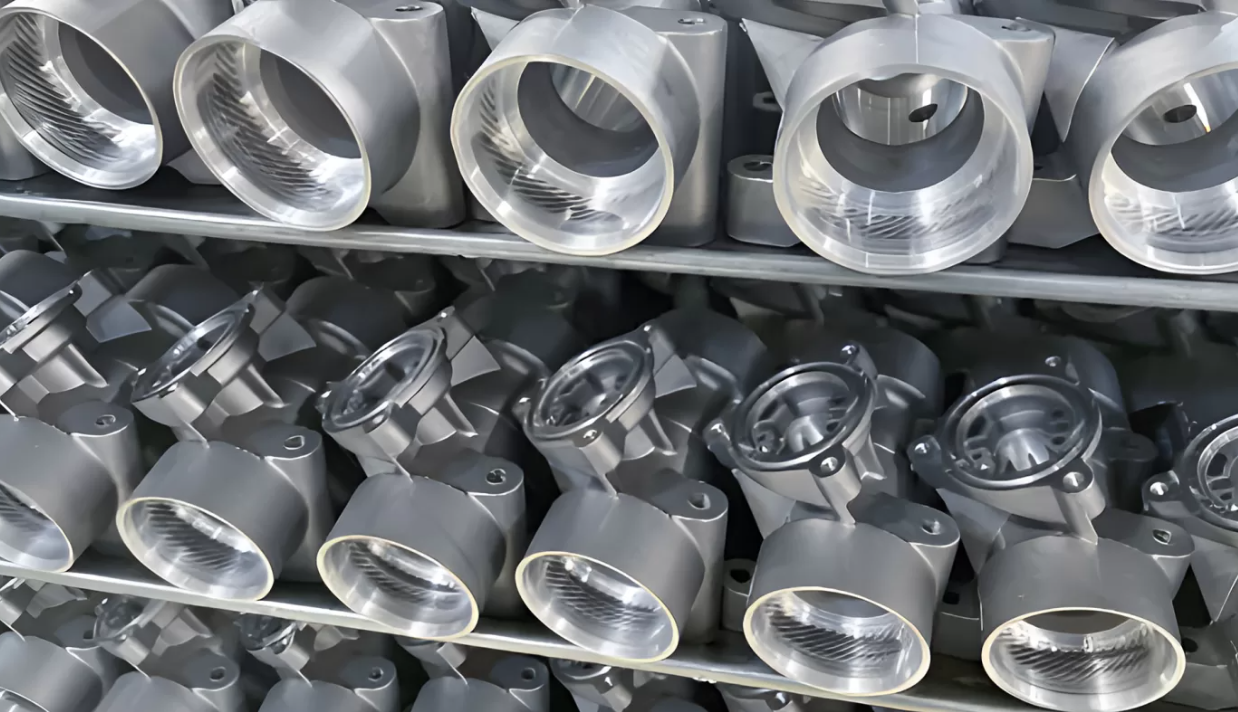
EMS Group provides advanced aluminum casting capabilities, ensuring that products meet the quality and strength standards needed for each specific application.
Stainless Steel Casting
Stainless steel casting is crucial for the production of components that require corrosion resistance and high temperature properties. This modality is widely used in food, chemical and pharmaceutical industries.
Characteristics of Stainless Steel Casting
- Superior Corrosion Resistance: Ideal for applications in wet or corrosive environments.
- Thermal Stability: Maintains structural integrity under high temperature conditions.
- Hardness and Strength: Offers excellent performance in high load applications.
Nodular Cast Iron
Nodular casting, also known as ductile cast iron, is a process that produces a type of cast iron with exceptional mechanical characteristics. This method involves the addition of a nodulizing agent to the molten iron, which transforms the shape of the graphite into the structure of the iron, generating nodulations instead of scales.
Characteristics of Nodular Cast Iron
- High Ductility and Strength: Nodular cast iron offers an excellent balance between strength and ductility, allowing parts to withstand loads and deformations without breaking.
- Fatigue Resistance: Thanks to their structure, nodular molten components exhibit high fatigue resistance, which is crucial for high-stress applications.
- Versatility: This type of casting is used in various industries, from automotive to heavy machinery, thanks to its ability to operate in extreme conditions.
EMS Group employs advanced technology in the production of nodular castings, ensuring that they meet the technical specifications needed for critical applications that require high durability and strength.
Silicon-Molybdenum Casting
Silicon-molybdenum casting is a process that uses an alloy of silicon and molybdenum, mainly used in the manufacture of components that require high resistance to elevated temperatures and corrosive conditions.
Advantages of Silicon-Molybdenum Casting
- High Temperature Resistance: This alloy is excellent for applications involving extreme temperatures, making it ideal for components in industries such as aerospace and energy.
- Corrosion Properties: Silicon and molybdenum offer remarkable corrosion and wear resistance, which increases the life of castings.
- Dimensional Stability: Parts made of this alloy maintain their mechanical and dimensional properties under harsh conditions.
EMS Group excels in silicon-molybdenum casting, offering solutions that meet the needs of its customers for applications that require highly specialized and strong materials.
Metal Injection Molding (MIM)
Metal Injection Molding (MIM) is an innovative technology that combines the advantages of plastic injection molding with those of metallurgy to produce complex metal parts at high speed and with a superior surface finish.
MIM Features
- Production of Complex Parts: MIM allows for the fabrication of intricate geometries that would be difficult to achieve with conventional machining techniques.
- High Precision: The process ensures considerable dimensional accuracy, which reduces the need for additional finishing operations.
- Material Efficiency: This method minimizes waste and optimizes material usage, making the process economically efficient.
EMS Group has incorporated MIM technology into its foundry service offering, allowing customers to access high-quality components and efficient production. This technique is ideal for manufacturing parts in industries such as electronics, medicine, and other fields where high precision and complexity are essential.
EMS Group ensures that every component produced meets the highest standards, allowing its customers to be confident in its ability to provide effective and efficient solutions in the field of foundry. The combination of advanced technology and professional expertise positions EMS Group as a strategic partner in the foundry industry, ready to face present and future challenges.

